Ilham Tohti Wins 2017 Weimar Human Rights Award
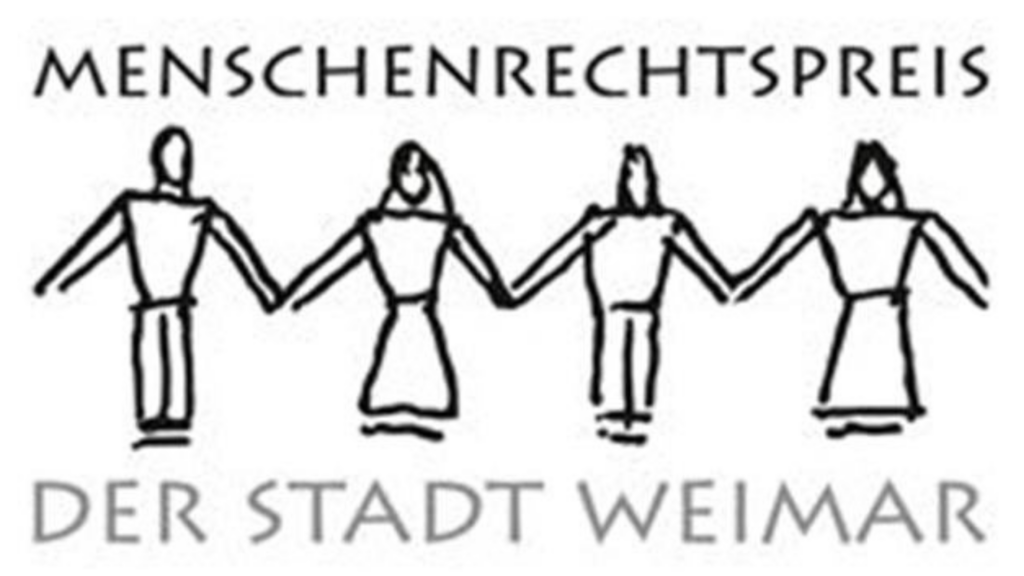
July 3, 2017
On Thursday June 29th the Weimar city council announced that they have awarded this year’s Weimar Human Rights Award to Professor Ilham Tohti for his dedication to advancing the cause of human rights for the Uyghur people.
In recognition of “its special historical responsibility and as a symbol of all the anonymous victims of dictatorships and tyrannies throughout the world,” the German city of Weimar each year presents a human rights award to “individuals, groups or organizations who actively advocate humaneness and tolerance between persons and peoples, and who particularly promote the protection and establishment of fundamental values such as equality, freedom and justice against the background of their ethnic and religious identity in their or for their home country.”
Ilham Tohti certainly meets the above criteria; he received a harsh sentence of life in prison for his efforts to promote dialogue and understanding between Han and Uyghurs through a Chinese language website entitled Uyghurbiz. In its announcement the Weimar city council stated that Professor Tohti always advocated peaceful co-existence and obeyed the existing laws of the China, and that his imprisonment and harsh sentence made it appear that the Chinese government is not interested in a peaceful resolution to the problems in the region. The council stated that it hopes the prize will help ensure that Professor Tohti’s message of peace and dialogue will not be forgotten, and will bolster efforts to secure his release.
The announcement of the council’s decision comes as attention to the plight of political prisoners in China has increased as news of the prominent dissident Liu Xiaobo’s terminal cancer diagnosis has made headlines around the world, with many interpreting his denial of treatment by the authorities as tantamount to a death sentence.
Liu Xiaobo is among the thirty-eight portraits of prisoners of conscience in China by Ai Weiwei opening this month at the Hirshhorn in Washington, D.C. The portraits are part of his work entitled Trace, consisting of 176 portraits of activists and free speech advocates from around the world made from thousands of Lego bricks. Among the portraits are six Uyghurs, including Ilham Tohti.
Ai Weiwei’s Trace can be seen at the Hirshhorn gallery in Washington D.C. until January 1, 2018. The Weimar Human Rights Award ceremony will take place on December 10th, International Human Rights Day.
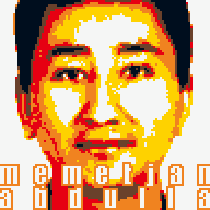
A Uyghur journalist for an official radio service, he received a life sentence for translating a WUC call for Uyghurs to protest the violence against Uyghurs at the Shaoguan factory in 2009 and for speaking to foreign journalists on the matter.

A journalist who managed a Uyghur language website, Nijat Azat was sentenced in 2010 to 10 years in prison for “endangering state security” for failing to delete content about the situation in East Turkestan from his website quickly enough.
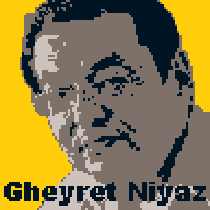
A journalist and administrator on Ilham Tohti’s Uighurbiz website, Gheyret Niyaz was sentenced to 15 years in 2010. His essays and interviews with the foreign press were the evidence presented at his trail for endangering state security.
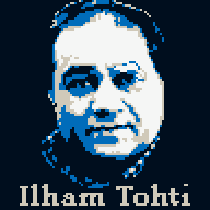
A professor of economics at Minzu University in Beijing and a prominent voice on Uyghurs’ economic, social and cultural issues, Ilham Tohti was imprisoned for life on charges of separatism in 2014.
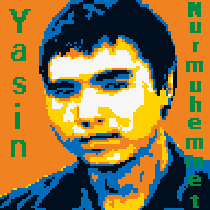
An award-winning author, Nurmuhemmet Yasin was sentenced to 10 years in prison in 2005 for writing an allegorical short story entitled “Wild Pigeon” about a bird who chooses to die rather than sacrifice its freedom. Interpreting this a criticism of the government, the authorities tried and sentenced him without a lawyer. His current whereabouts are unknown.

A Uyghur Christian preacher, Alimjan Yamit was detained in 2008 and sentenced to 15 years in prison for “selling state secrets to overseas organizations” despite having no access to sensitive material.
